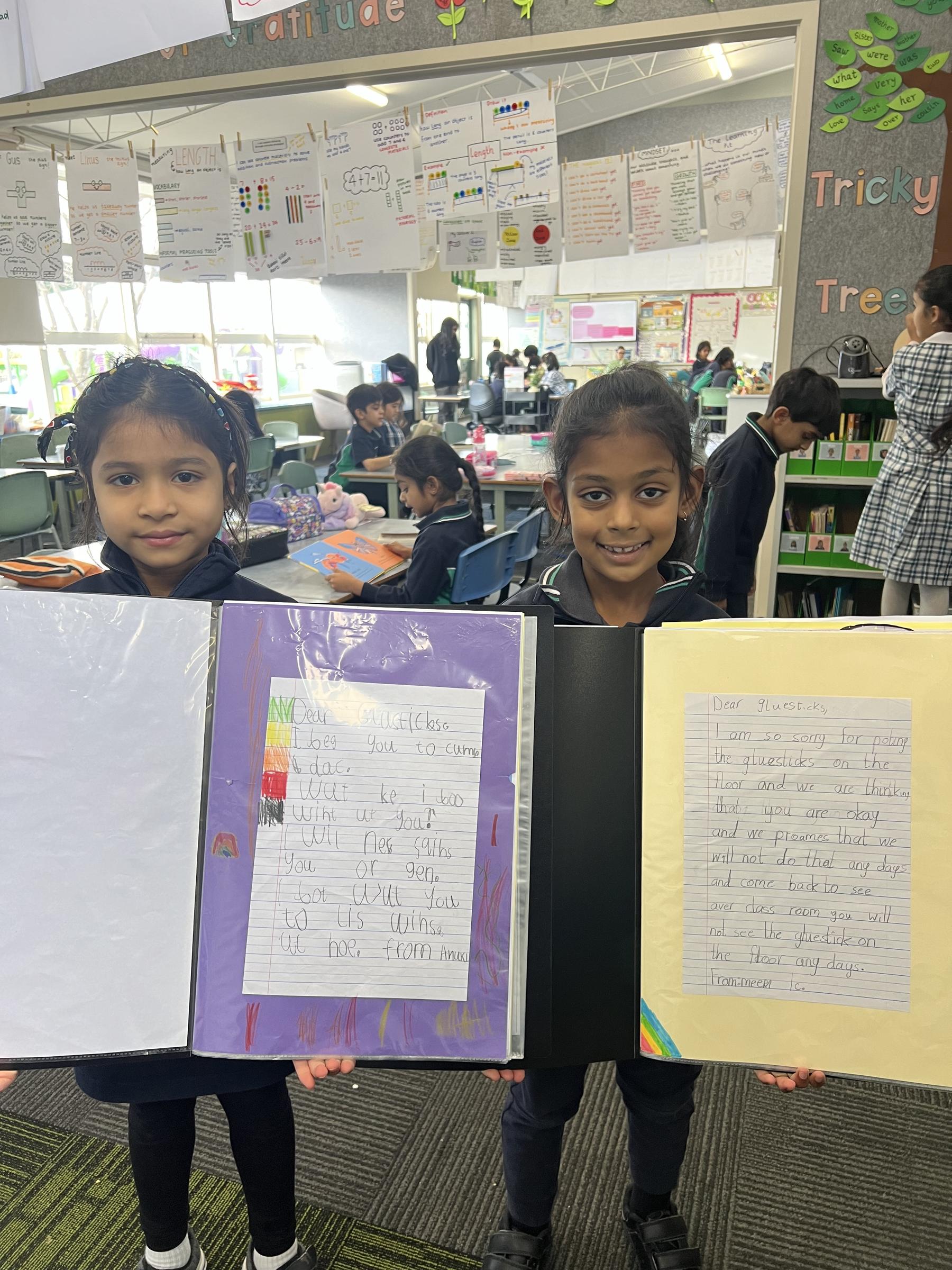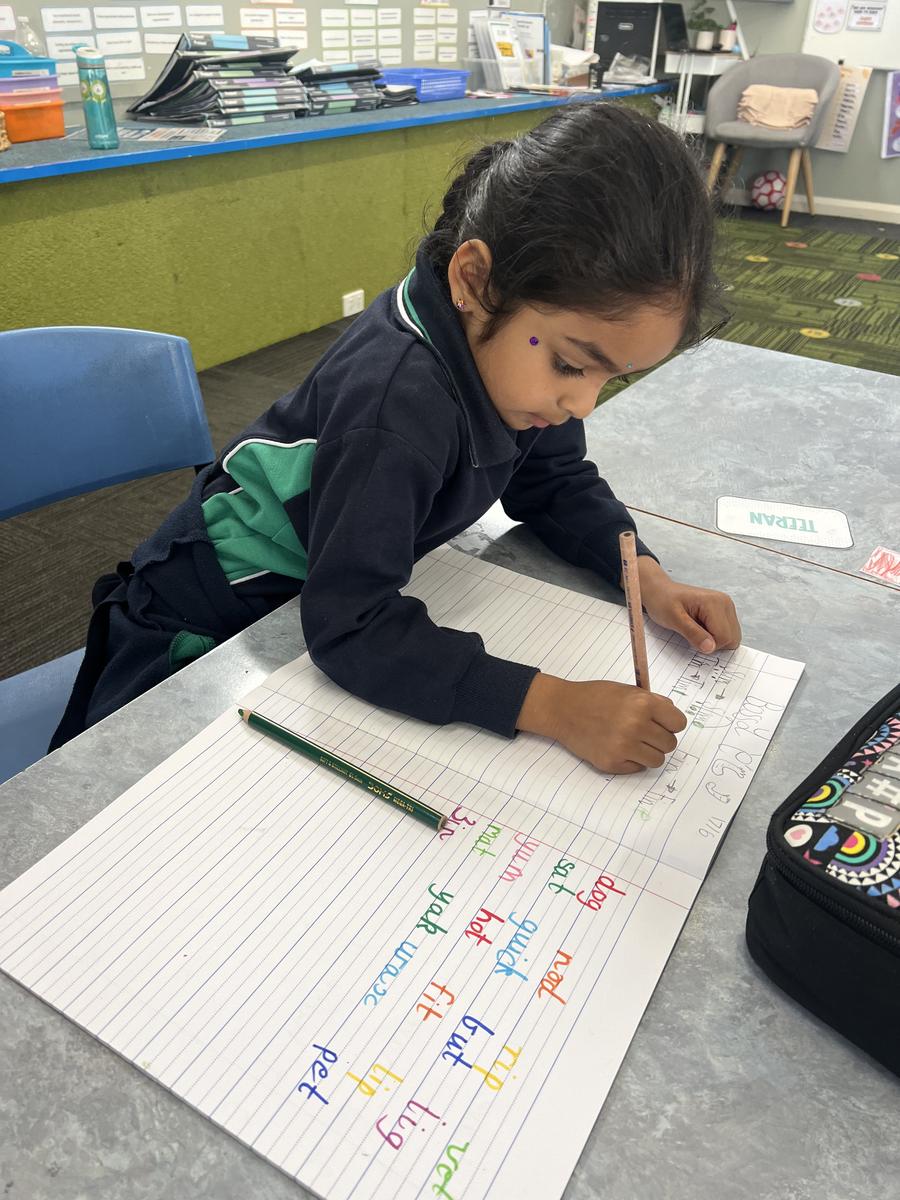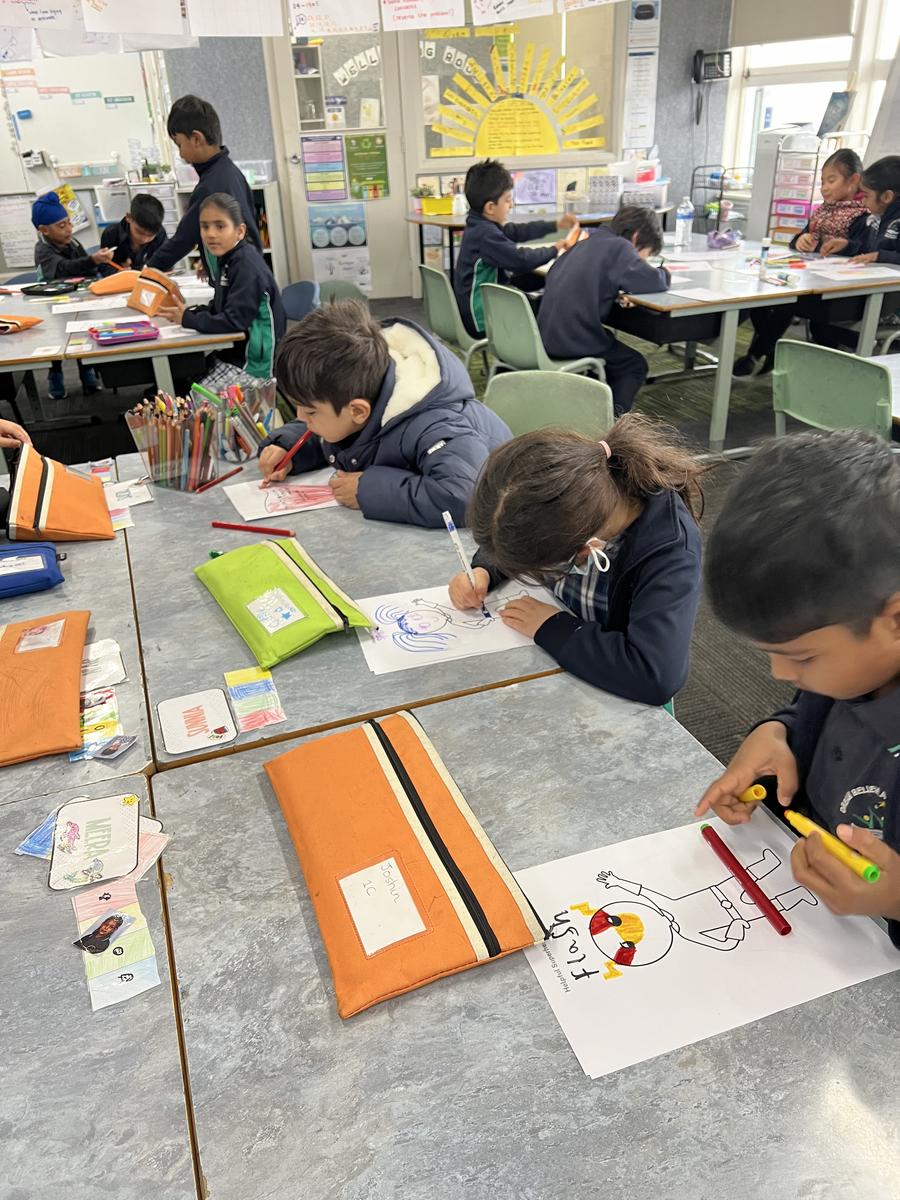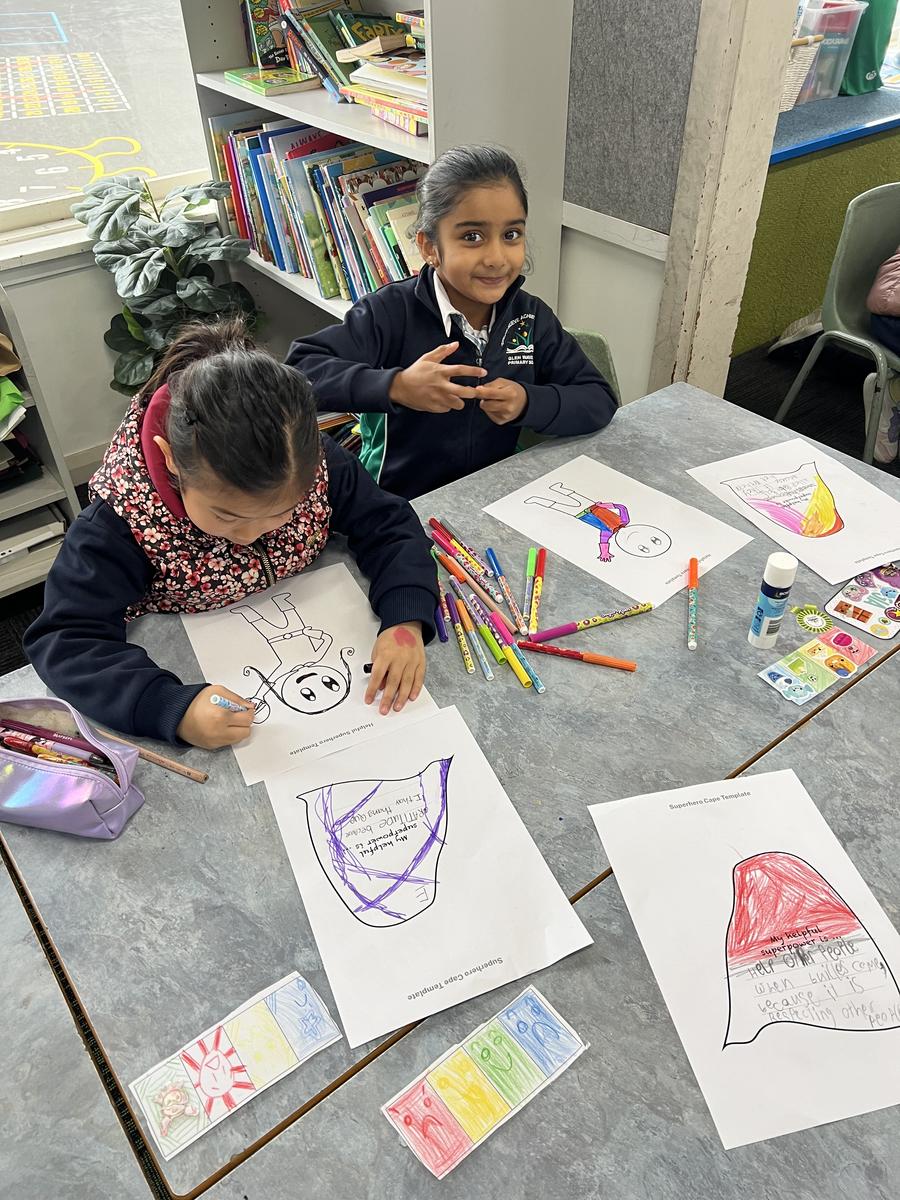English

Reading, Viewing, Listening and Speaking
In Term 3, Year One will further deep dive into a second semester of Initial Lit. Each week learners engage with five focus lessons. These focus lessons will introduce them to new phonemes such as long vowel sounds and split digraphs, as well as base words and suffixes. Learners will also explore different text types in our two Storybook lessons each week. These storybooks will expose learners to imaginative, persuasive and informative text types. Each lesson will unpack key Reading Comprehension skills such as questioning, predicting, inquiring into new vocabulary and summarising the text. We are all looking forward to continuing this exciting journey with learners.
How can you support your children at home?
- Listen to your child read their reader each day and invite them to record this in their Reading Diary.
- Encourage learners to read their reader or a book more than once, using the first reading to decode unknown words and explore the meaning and the second reading opportunity to understand the text and connect it to their life.
- Pause at the front cover or various stages of a book or movie and predict what might happen next with your child.
- Log in and use ‘Reading Eggs,’ which contains a variety of texts, lessons and learning tasks.
Key Vocabulary:
(3-5 words or phrases for this learning area, written as a list)
E.g. syllable, blend, stretch, discussion
Writing
In Term 3, Year One will delve into sentence structure, emphasising correct punctuation, descriptive language, and cohesive composition. This focus will enhance learners' writing skills, ensuring their texts flow smoothly. In the second half of the term, students will apply these skills to various text types, including narratives and information texts. For narratives, the emphasis will be on creating vivid character and setting descriptions that captivate the reader's imagination. While working on information texts, learners will concentrate on organising and categorising their information, enabling them to craft well-structured paragraphs with related content.
Key Vocabulary:
- Super Sentence
- Capital Letter
- Full Stop
- Noun
- Verb
- Adjective
- Describing
- Character
- Setting
- Paragraph
How can you support your child’s English learning at home?
- Select an object, character or setting and brainstorm as many different adjectives you could use to describe the noun. Encourage your child to think about the five senses (Sight, Touch, Smell, Taste, Hear) and how they relate to the chosen noun to help guide their thinking.
- Explore different types of information texts in our environment daily lives, such as newspaper articles, magazine features, instructional manuals, and online resources.
- Practice writing sentences that include all elements of a Super Sentence.
- Capital Letter
- Full Stop
- Must be about something or someone (contain a noun).
- Must make sense.



